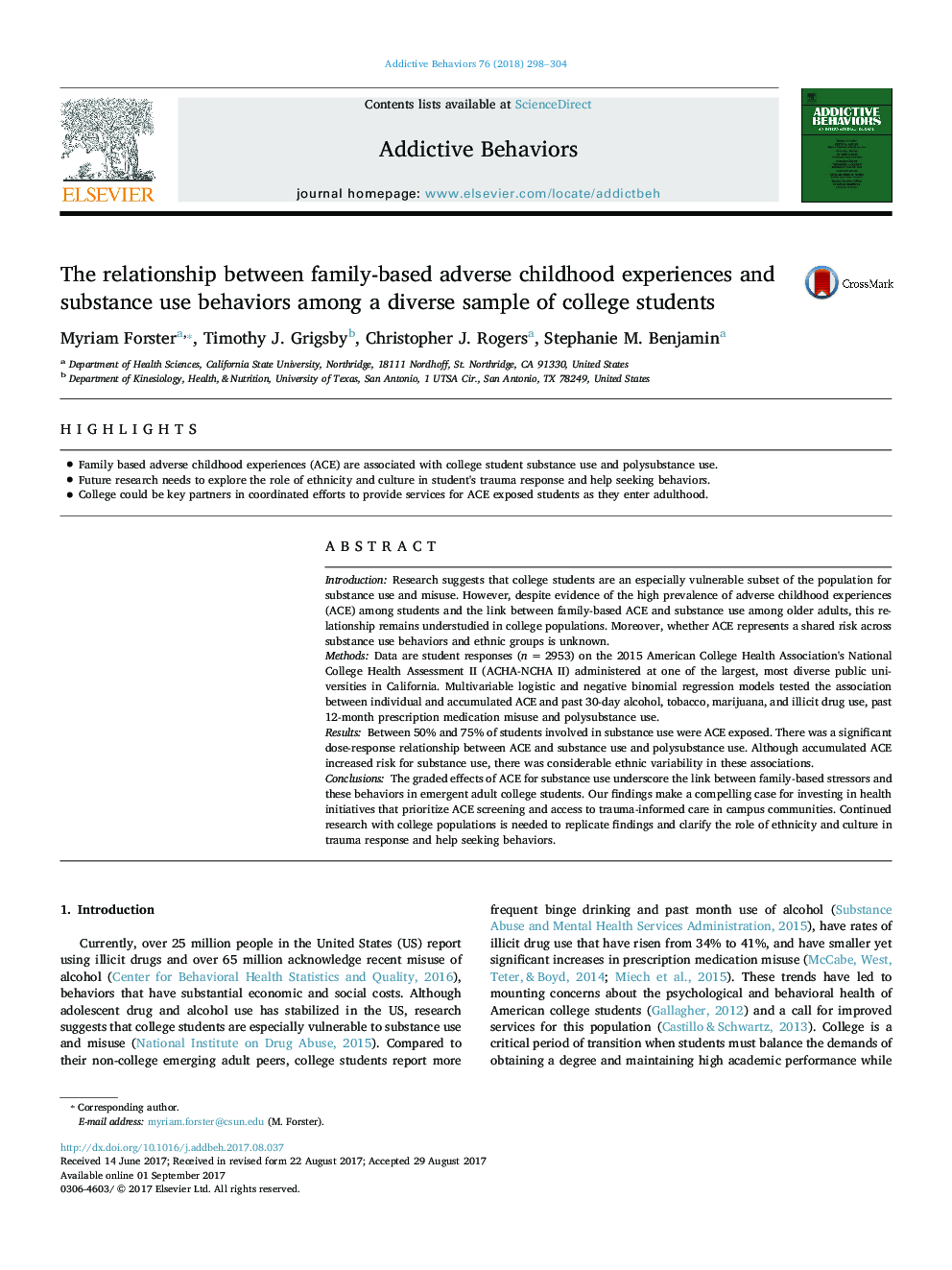| Article ID | Journal | Published Year | Pages | File Type |
|---|---|---|---|---|
| 5037638 | Addictive Behaviors | 2018 | 7 Pages |
â¢Family based adverse childhood experiences (ACE) are associated with college student substance use and polysubstance use.â¢Future research needs to explore the role of ethnicity and culture in student's trauma response and help seeking behaviors.â¢College could be key partners in coordinated efforts to provide services for ACE exposed students as they enter adulthood.
IntroductionResearch suggests that college students are an especially vulnerable subset of the population for substance use and misuse. However, despite evidence of the high prevalence of adverse childhood experiences (ACE) among students and the link between family-based ACE and substance use among older adults, this relationship remains understudied in college populations. Moreover, whether ACE represents a shared risk across substance use behaviors and ethnic groups is unknown.MethodsData are student responses (n = 2953) on the 2015 American College Health Association's National College Health Assessment II (ACHA-NCHA II) administered at one of the largest, most diverse public universities in California. Multivariable logistic and negative binomial regression models tested the association between individual and accumulated ACE and past 30-day alcohol, tobacco, marijuana, and illicit drug use, past 12-month prescription medication misuse and polysubstance use.ResultsBetween 50% and 75% of students involved in substance use were ACE exposed. There was a significant dose-response relationship between ACE and substance use and polysubstance use. Although accumulated ACE increased risk for substance use, there was considerable ethnic variability in these associations.ConclusionsThe graded effects of ACE for substance use underscore the link between family-based stressors and these behaviors in emergent adult college students. Our findings make a compelling case for investing in health initiatives that prioritize ACE screening and access to trauma-informed care in campus communities. Continued research with college populations is needed to replicate findings and clarify the role of ethnicity and culture in trauma response and help seeking behaviors.
